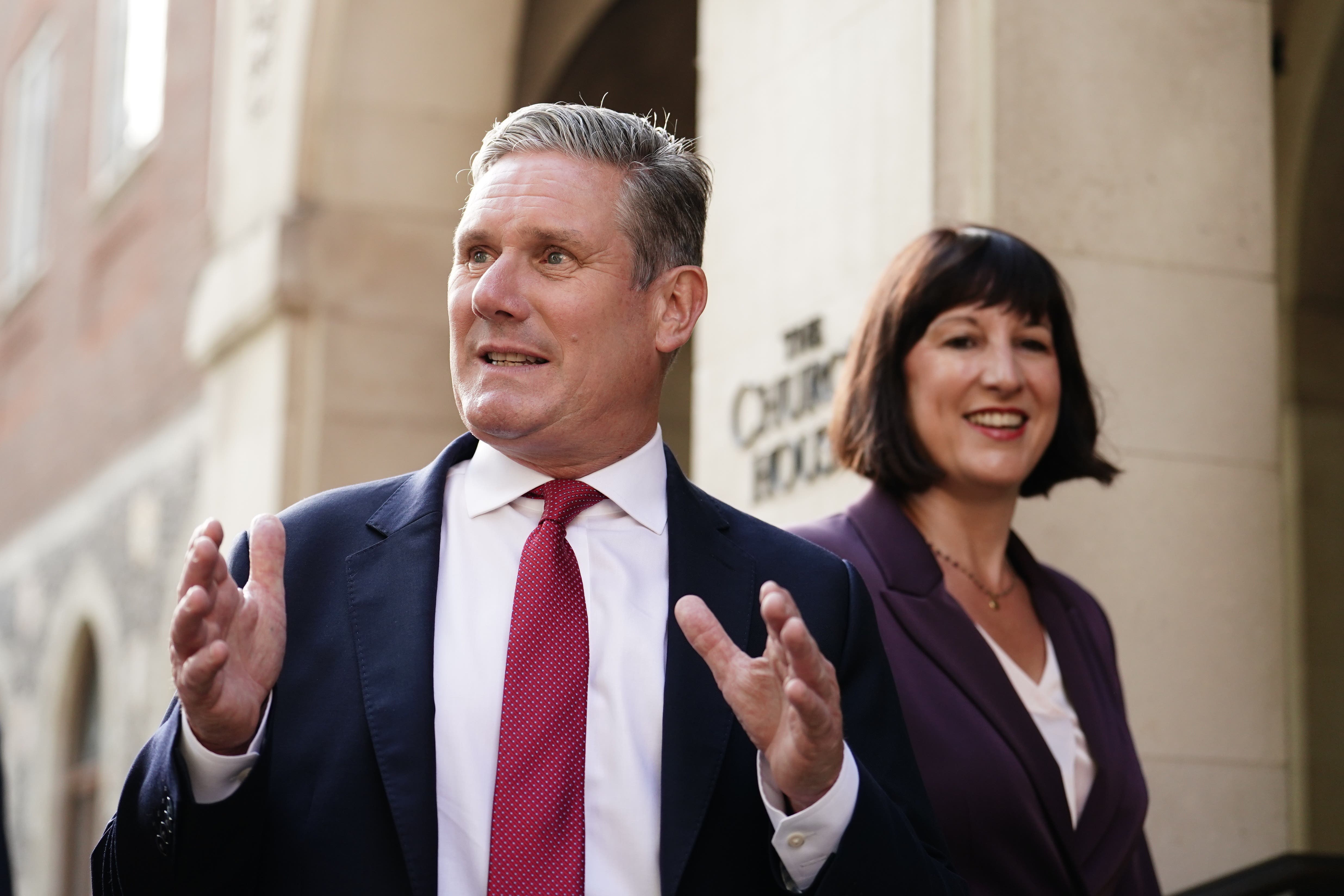Labour’s big plan for business? Even more talk
Despite countless meetings with tycoons and big-name bosses, the party’s strategy for pulling the sector out of its misery boils down to vague non-promises, writes Chris Blackhurst. The industry is crying out for action, not endless waffle


As the Tories continue to plot and knife each other, minds elsewhere are turning to what appears a racing certainty.
Sir Keir Starmer and Labour look increasingly like a shoo-in for No 10 – more so with the passing of every Tory twist.
In which case, British business is asking: what will a Starmer government be like? Well, we now have a clue. Labour has published its long-awaited business review. And? Well, don’t get too excited.
Entitled “A new partnership: A long-term plan for government business relations to power our economy and society”, it does not inspire.
The document is the culmination of all those talks over innumerable coffees, teas, breakfasts, lunches and dinners held by shadow chancellor Rachel Reeves and shadow business secretary Jonathan Reynolds – plus other senior members of the Starmer team – with corporate chiefs and business leaders. Sadly, instead of coming up with anything substantive, it advocates… more talking.
We’re told there needs to be greater coordination with business from the heart of government to deliver a world-class standard for engagement… Long-term relationships between government and business need to be fostered… Engagement should be open and transparent, sourcing the best ideas for our economy… More dialogue between regulators and No 10, the Treasury and the Department for Business and Trade.
Tackling the UK’s foreign direct investment problem should be a priority in order to make the UK the best place to invest and start a business.
That, pretty much, is it. In an unintentionally ironic reference, the report advocates the review of existing structures and removing “talking shops”.
The clues were always there. Starmer’s reign in opposition has been characterised by woolliness, an unwillingness to commit, hesitancy and resulting fudge. It was there on Brexit, there on antisemitism. So why should business be any different?
Compared with the Tory prime ministers he’s had to face, notably Boris Johnson and Liz Truss, Starmer’s plodding approach has been hailed as a virtue, his caution viewed as a welcome contrast to their gung-ho boosterism. But, perish the thought, could it be masking a lack of ideas, an absence of policies that would make a positive improvement?
Certainly, there are none here – unless talk about talks is hailed as a concrete measure, which it might be in Starmer circles. It makes you wonder what they did discuss over all those cuppas and meals. We were encouraged to see them as Labour’s modern “prawn cocktail offensive”, in reference to the wooing of the City by the party in the 1990s. But on this evidence, nothing tangible has come forth.
The “New Partnership” report was accompanied this week by a speech from Reeves to 400 senior business figures each paying up to £1,000 at the Oval cricket ground. There, she did say Labour would cap corporation tax at its current rate of 25 per cent. Labour would also keep the “full expensing” regime, a Tory tax break aimed at boosting capital investment, and it would not reimpose the restriction on bankers’ bonuses (this, despite being highly critical when Truss removed it). Reeves further watered down Labour’s original pledge to spend £28bn on “green” initiatives; now it’s an “ambition”.
There was plenty of reference to supplying the “stability” and “certainty” that business craves. Anyone yearning for accompanying hard detail would again be disappointed. It’s perplexing because the business community does have a wish list. It includes reform of the business rates scheme; reduced red tape; scrapping of the “tourist tax”; and easier trading conditions with the EU.
There are many others. They come up in any conversation with a business chief as to what they would reform. Similarly, Britain’s productivity gap with its peers is a recurring bugbear. Again, it does not merit priority status.
Starmer, ever the lawyer, insists on safety first, so he is not guaranteeing he will spend money he hasn’t got and not promising something dependent on the whim of another country. To some extent, that is commendable, and it is in sharp contrast to the buccaneering mentality of a Johnson or Truss.
But he is in danger of taking things to the opposite extreme. The polls are indicating the nation is crying out for change, businesses seem prepared to forego their traditional favouring of the Tories in return for a government that understands their needs, provides strong economic growth and is business-friendly. The Tories failed to deliver and now Labour will get its chance.
That does not mean, however, that Starmer should adopt an ultra-cautious approach, diametrically opposed to the likes of Johnson and Truss.
A second term is not a given. It’s likely that in this election the Red Wall will turn against the Tories and back to Labour. Next time, they can turn again. The Wall is not necessarily a wall anymore. Likewise, business can just as easily withdraw its support. Armed with a possible hefty majority, there is nothing to stop Starmer from hitting the ground running, announcing a raft of policies that he and his team have spent years in opposition crafting for just this moment.
That, surely, is what the nation and business, expect. What they don’t want, dear God, is more talking. They seek action, not words.
There’s no point denying it: the heart sank on reading the “New Partnership”. There was nothing to excite. Please, let this not be the end. For the sake of business and national prosperity, Labour can, and must, do better than this.





Join our commenting forum
Join thought-provoking conversations, follow other Independent readers and see their replies
Comments